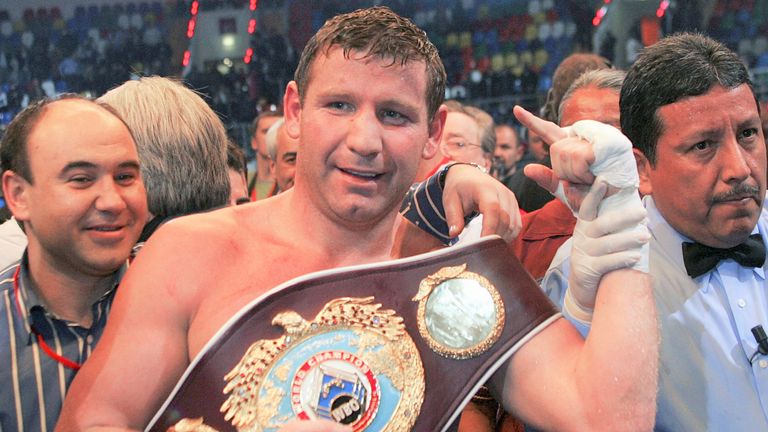
Wladimir Klitschko’s Rival World Champ, Sultan Ibragimov Opens Up on Boxing Career
Sultan Ibragimov has been the subject of sensational stories, some barely believable, but none have explained his hasty disappearance as a world heavyweight champion.
He will forever be known as Wladimir Klitschko’s most unsatisfying world title win, a dire points decision in the most forgettable unification clash in heavyweight history.
But why? Why did Ibragimov fail to pull the trigger in 12 tedious rounds, and then suddenly vanished from the sport following his sole defeat to the dominant Ukrainian?
“I don’t know what went through his head,” admitted Leon Margules, who promoted Ibragimov on his rise from obscure challenger to impressive WBO champion.
That majestic first name did not seem to sit right with Sultan, despite his ascent to the heavyweight throne. Standing next to the chiselled Klitschko, the shorter, stocky Ibragimov did not look like a heavyweight champion. He did not talk like a heavyweight champion, offering the occasional sentence in broken English, whilst opponents like Shannon Briggs ranted down the lens. At the end, he did not fight like a heavyweight champion either.
Make no mistake, Ibragimov had more than enough power and strength to chop down boxing’s biggest man when he was in the required mood. Lance ‘Mount’ Whitaker, a contender who received this nickname due to his lofty stature, incited a rare show of anger from Ibragimov at their pre-fight press conference. Both fighters traded punches in front of the media, injuring a matchmaker in the process, but when they later entered the ring, Ibragimov inflicted a punishing beating on Whitaker, who was stopped in the seventh round.
It is rumoured that Ibragimov delivered a similarly painful lesson to a crop of Russia’s national boxers, who had arrived in the remote region of Dagestan in search of capable sparring partners.
Sultan had humble beginnings as a goat shepherd and was even thought to have resided in a mud hut on the side of a mountain. With a physique more suited to wrestling, Ibragimov had barely shown his boxing talent until asked to withstand punches from the visiting Russians. After toppling their top talent, Ibragimov was soon welcomed into the national squad and returned with an Olympic silver medal from the 2000 Sydney Games.
“Boxing found him, he didn’t pick boxing,” recalled Margules, President of Warriors Boxing, who helped to guide the professional boxing careers of Sultan and Timur Ibragimov.

